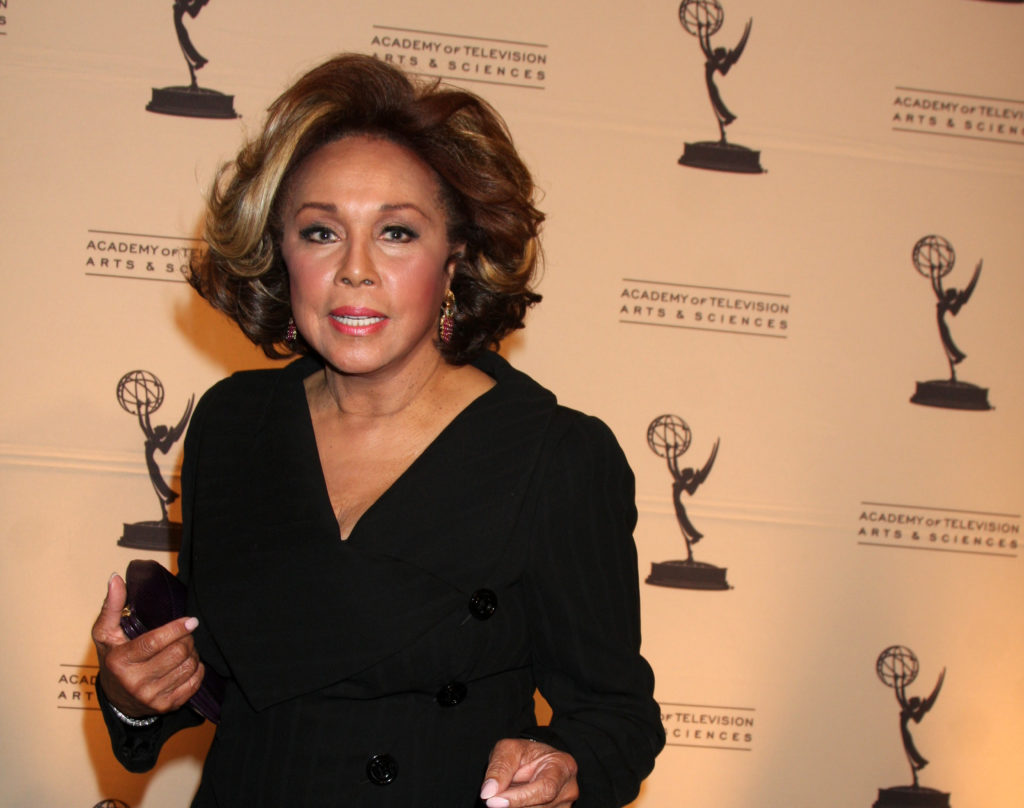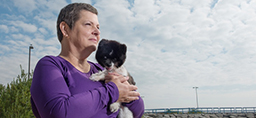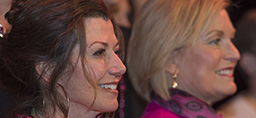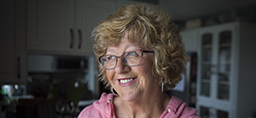
Diahann Carroll has played many roles in her 60-plus years in show business, but perhaps none has changed her more than her real-life roles of mother and cancer survivor.
She starred in the 1960s television series “Julia,” becoming the first African-American to play a role other than the stereotypical roles African Americans were normally cast for. Carroll is also known for many Broadway performances and roles in “Porgy and Bess,” “Dynasty” and “Grey’s Anatomy.”
The 81-year-old actress will be the keynote speaker at this year’s Spectrum Health Candid Conversations event.
The talented television and stage performer recently talked with Spectrum Health Beat about a bevy of topics, including her battle with breast cancer, her relationship with her daughter, her philosophy on life.
Carroll doesn’t recall the date she received her breast cancer diagnosis, but she vividly remembers where she was and what her thoughts were—standing in her Beverly Hills bedroom, looking out over beautiful green hillsides, saying to herself: “This is very beautiful. I do hope you have enjoyed it, Miss Carroll.”
With life hanging in the balance, she decided to help others, visiting cancer patients and their families in hospitals, agreeing to photographs and interviews about her own devastating disease diagnosis and even pairing up with Connie Chung to bring television cameras and awareness into the radiation room.
But the past is exactly that for Carroll. The past. She’s not bitter about her childhood, her fight with cancer or her broken marriages. Carroll’s life has not always been easy, but it’s ultimately been rewarding. “If I dwell on what I did, I won’t ‘do,'” she said.
Q: What’s new in Diahann Carroll’s life?
A: This is a time in my life when I am enjoying the relationship with my daughter. I have all sorts of things to remind me that she’s not a little girl, she is a woman with two children. Very often when I’m talking to her, I have to keep reminding myself that I mustn’t sound as if I know everything because her learning process is just as important as my learning process was when I was her age. We’re finding it, for the most part, quite funny, amusing. She looks at me sometimes and says, ‘Mom, I really do know how to make a chicken or a steak. I really do, Mom.’
Q: What were your favorite roles and why?
A: There’s no way to relate favorite roles. When you go into a role to do the work, you either have a lovely time doing it, or the people you’re working with give the kind of feedback you need when you’re learning. …The legitimate theater, I think, is the real test of what you can bear. Doing that performance eight times a week is not an easy thing to do. …You just do the best that you can and, if you’re fortunate, you come out of the experience saying, ‘That was wonderful.’
Q: Can you describe the moment in 1962 when you became the first African-American woman to win a Tony Award for Best Actress? How big of a breakthrough was this?
A: How many years ago was that? I’m sure I was very excited. At that time we didn’t talk about ‘Gee, I won this or I won that’ as much as they do today. It was more about doing the work than anything else. …This business is not about winning awards. Really, it’s about doing the work.
Q: Please tell us about your journey with breast cancer.
A: I think the world for me became very surreal for a period of time.
Q: When were you diagnosed?
A: I’d have to look it up. I’m really not good with that sort of thing. It’s just ‘move on.’ …You go into a mental state of coping with what news you’ve just been given by a doctor. …I did a lot of work at that time trying to understand cancer. There was so little information. …I remember from my first few days of my cancer, my response was to get out as much information as I could. I had 12 weeks of radiation. Thank heavens there was no chemo involved. I felt fortunate about that.
Q: How did the experience of having breast cancer change you?
A: The thought of dying certainly will make you humble. …I had to try to handle it with as much dignity and not worry my family about it constantly. I’ve always believed that if you can find a brighter side of a very unfortunate, unhappy-making situation, it’s your responsibility to do that because everyone around you is going to be even more devastated than you. At some point, you have to take charge of the fact that you have a life to live and you’ll do the best that you can.
Q: How have you made a difference as a breast cancer activist?
A: I shared as much information as I possibly could on almost a daily basis. …There’s a lot of investigating that has to go on with all of us that have it—asking questions, maybe even traveling to ask questions, deciding on a course of action, which always the family wants to have something to do with that. It’s totally time consuming, but I’m happy I was able to do that.
Q: How did your family help you through this process?
A: You do feel isolated. I was dealing with caretakers and patients and the truth of how cancer can affect everyone in your family, particularly since I was a breadwinner and we all had to come to terms with how fast do we move or do we move at all. It was a family effort. I was very proud of my family.
Q: What message will you bring to the Spectrum Health’s Candid Conversations event?
A: Whenever we speak, it’s important to remind both men and women that (cancer) has to be attended to immediately. You must … keep yourself on track so that you really understand what has been suggested to you and that you have the right people to help you think these things through. No one is exempt.
Q: What do you wish your legacy to be?
A: (Long pause). She came, and with the gifts and surprises that she was given, she did the best that she could. I’m happy if I’d be remembered in a positive manner. That I cared, not just for my family but for others. Gee, that’s a lot. And that I did the best work that I could possibly do. I like to think of myself as one of the early role models.
Q: What do you think our readers would be surprised to learn about you?
A: I took two things in my life extremely seriously, my baby and my work. I really don’t think I understood the importance of marriage and a good partner until I was maybe in my 70s.
Q: Anything else you’d like to add?
A: I’m very happy to have reached this place in my life when I look forward to every day and I feel the wonderful gift to allow me to be this healthy at this age. I mentioned to my doctor I’d like to do some traveling. He said, ‘Would you do me a favor?’ I said, ‘Yes.’ He said, ‘Would you think about how long you’ve been in the business, which is over 60-some-odd years, and what you had to do to get out into the world, the whole world? I would think you should show how graciously you can understand that your body is extremely tired and I have no medicine for that. I just would like you to spend days sitting down and maybe reading a little.’ And I said, ‘Doing what? That’s doing nothing.’ So we made a pact. I’m going to take as many days as possible to sit out on my terrace and enjoy it really. I deserve it. I certainly do.
 /a>
/a>
 /a>
/a>
 /a>
/a>